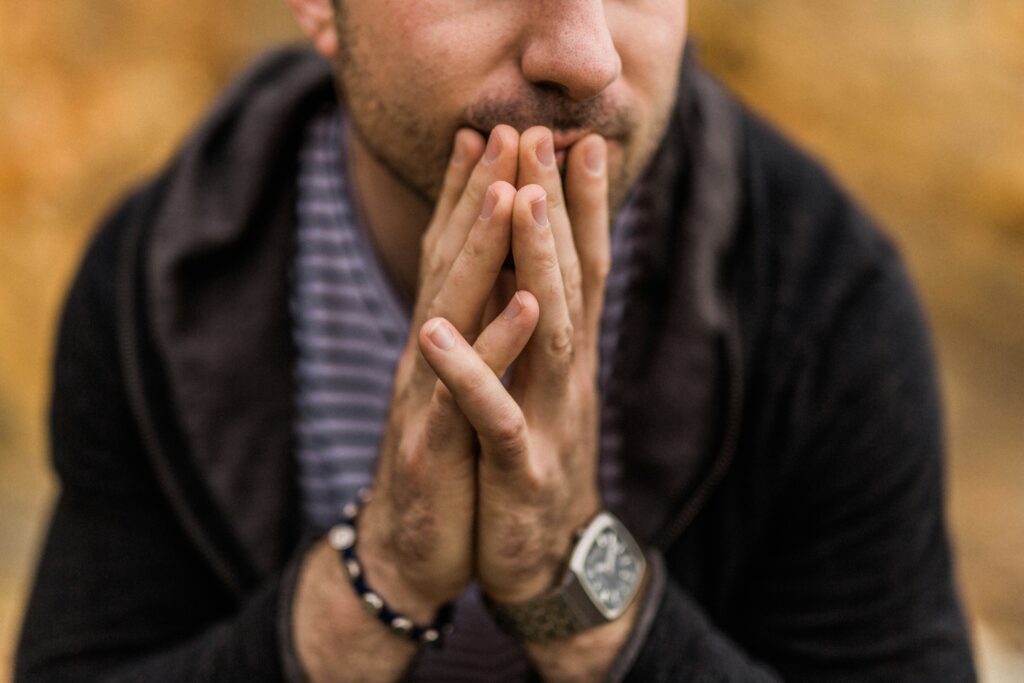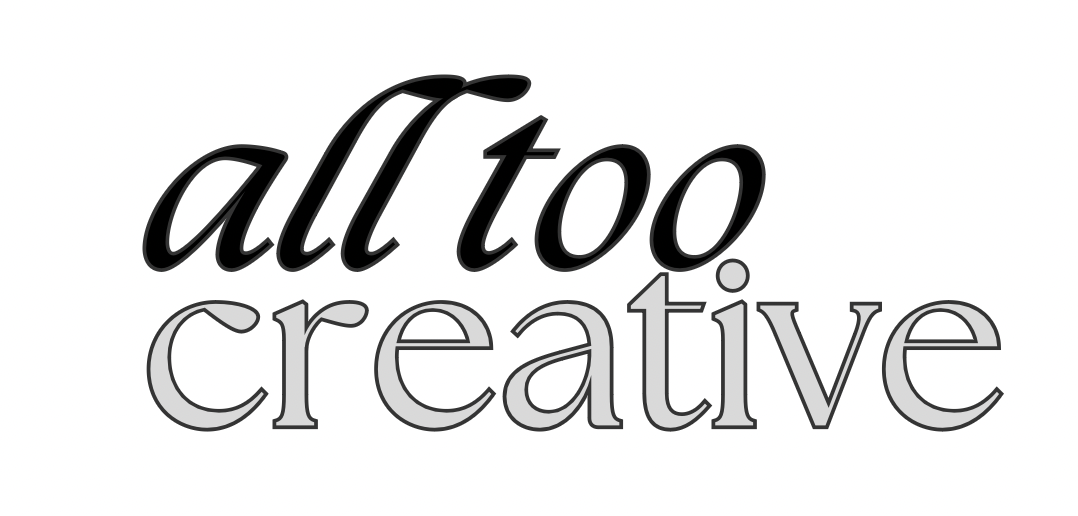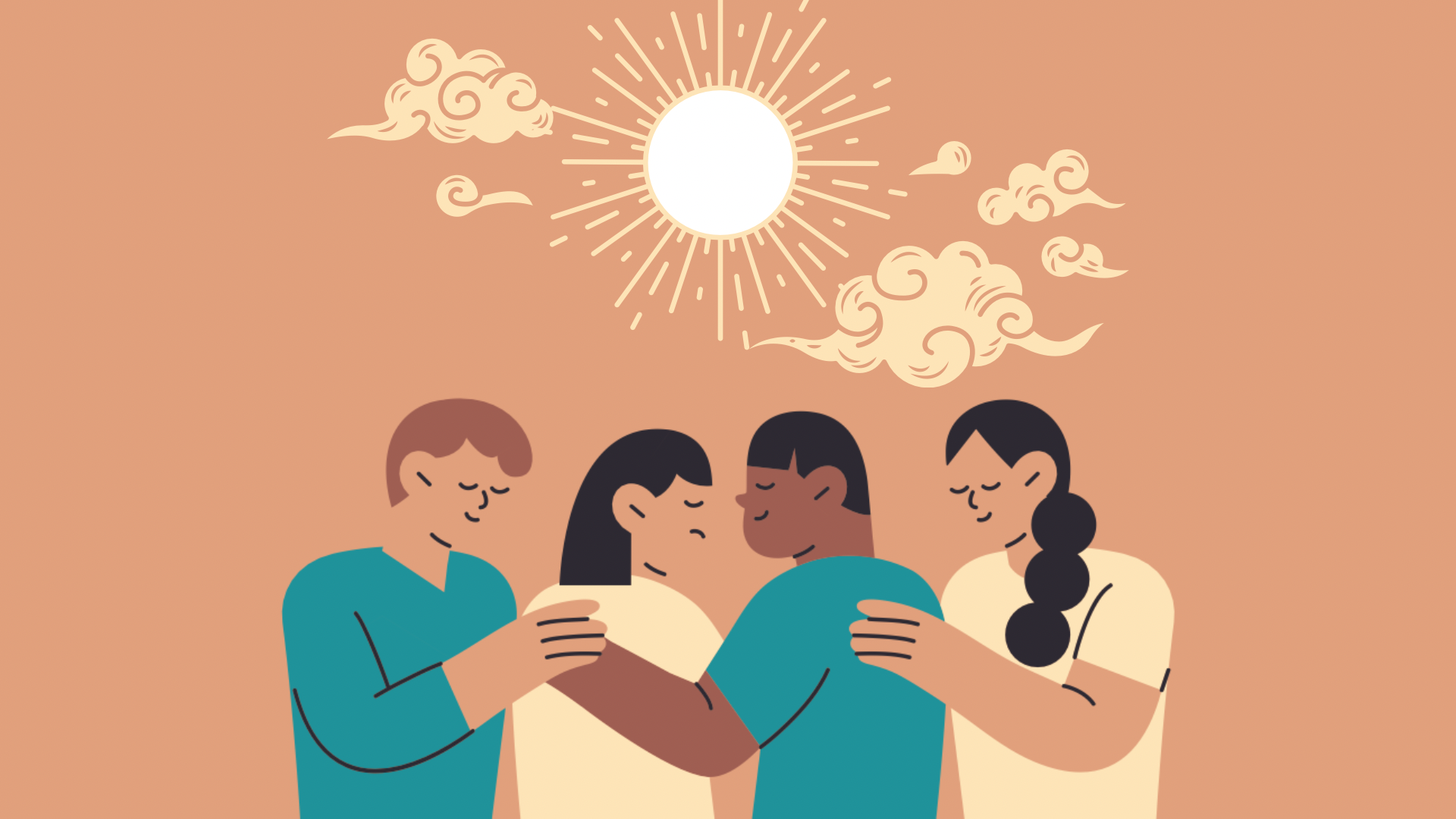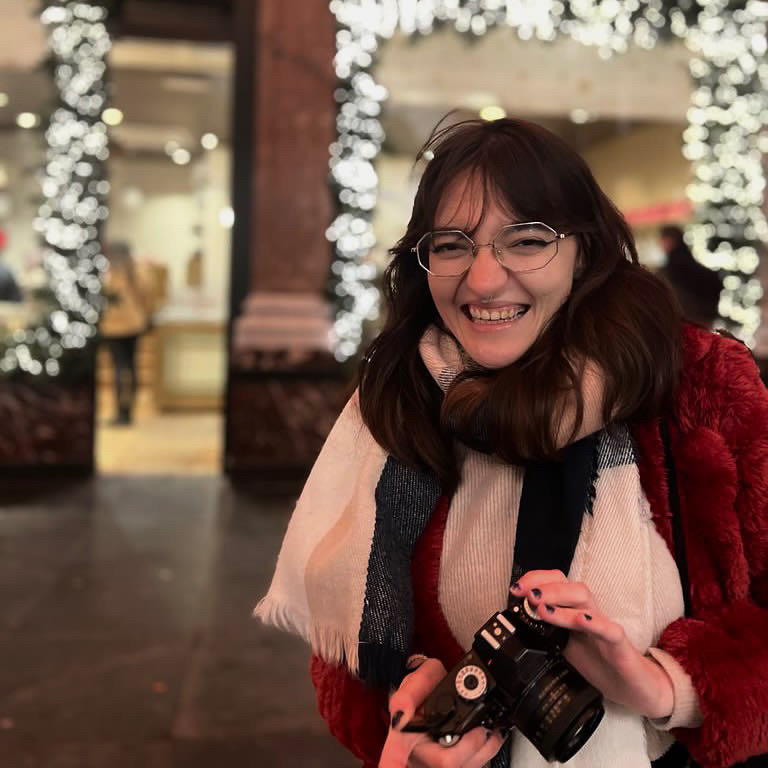As mental health awareness month comes to an end, we would like to bring attention to various mental health issues and neurodiverse experiences. These tend to come with a lot of preconceptions, stereotypes, and misjudgements. We reached out to some people and asked for their input on their experience with their mental health issues. And, of course, what they wish people knew about it.
Anxiety Disorders

Generalised Anxiety Disorder
Anxiety defines itself (for me at least) by the impression of losing control, of not handling even the small things that seem natural to others’ eyes. The impression that everything is overwhelming me, that everything is above my capacities and that I won’t be able to manage it.
Sylvain, Belgium
Small issues seem insurmountable. For example, my promoter just gave me my paper back with notes and there were a lot and I had an anxiety induced breakdown because of it, which seems pointless in hindsight, because I can just fix what I did wrong. I feel like personal experiences and what gave you that trauma is what makes it so much worse than it is. Back in middle school, I got made fun of by a teacher in front of the entire class and ever since I’ve had a paralyzing fear of failure and public speaking.
Pete, Poland
Though I think I work pretty well with my disorder, life is still different and difficult at times. It’s been helpful to have people around me who either struggle with mental health or really understand the struggles, but there are times when I still feel like my anxiety is a topic of doubt for other people. Part of it is the fact that I’ve never been formally diagnosed. There have been times where, even with my closest friends, they’ve made me feel like my anxiety somehow doesn’t feel “bad enough”. That because I don’t have a diagnosis, or because I don’t experience anxiety in the same way as them, they deserve more grace than I do. So, I feel like I would want to tell people that, no matter what mental health issue you are talking about, everyone deals with it and experiences it differently. Of course, there are certain symptoms people need to have in order to be diagnosed with certain mental illnesses. What I’m talking about is the symptoms themselves.
I feel like because of different media (film, books, and social media) people have homogenized certain mental illnesses (like anxiety, depression and OCD) into looking like one form of those things. Anxiety looks like constant panic attacks. Depression is lying in bed all day. OCD is counting, patterns, and habitual hand washing. While yes, a lot of people with those disorders experience that, not everyone does. For example, my anxiety has led to trichotillomania. From what I’ve seen, this isn’t depicted in media or really talked about in relation to anxiety. I would like people to know that, if someone they know has anxiety, or any other mental illness, don’t expect it to look like what you’ve seen on TV. They’re not actors, they’re people. And no matter how their mental illness outwardly manifests, it is still valid.
Jay, United States
Don’t minimize someone’s stress or doubts, instead communicate to see how to manage it or go around the situation. What may be simple for someone can be exhausting for others because of having to prepare to the different scenarios that our minds take into account.
Perrine, Belgium
I went through a really rough patch with my life, friends and career at the start of the year. My identity was so tied to my job that when it was gone it destroyed me. I moved home with my parents for a while and some of my friends turning their backs on me, pushing me out of the company we started. They talked behind my back, all because I lost my value. Now I’m in a new job in the industry and it’s way better for me, I have a lovely apartment, amazing friends, family and boyfriend that all stood by me. I made it through but I feel the same level of anxiety but people don’t always see it as justified as I got everything I wanted. I still hold onto the fear that it will all fall apart again. I’m currently on a dream vacation but right before this one of the friends that turned on me started up the drama again when I gave them a chance to work through it and I got spiked on a night out. On the outs it all looks perfect but social media is fake like that.
Katie, United Kingdom
I can look calm and collected, seem chill and easy going but my mind is working 24/7 and all the time it’s just something. Especially anxiety mixed with BPD. Someone’s tone will change or their face expression will be serious and it’ll ruin my day. All day I will be thinking about how this person hates me, nobody likes me, I’m just bothering everyone around.
Robina, Latvia
Obsessive Compulsive Disorder

OCD is debilitating. I remember before I was diagnosed, I had this huge anxiety surrounding health and contamination. I had periods of time when I couldn’t leave my house. Doing my rituals/compulsions doesn’t erase the obsessive and intrusive thoughts, so it’s like my mind is a prison and I am stuck in it. Sure, compulsions bring a bit of relief sometimes, but they don’t erase the source problem, which comes back again and again. Even when I think I’m over a fixation, it’s still there, at the back of my mind. The worst part of it is influences everything in my life. My intrusive thoughts show up in my nightmares, so I have to medicate for that. And when there’s a treatment that helps me get through daily life, there’s still the chance that I’ll get triggered by something and I’ll enter an OCD cycle. I’d like people to be more understanding of how difficult it is to live with this disorder, and stop looking at us like we’re insane.
Vonnie, Belgium
OCD is more than being a clean freak. In fact, my OCD causes me to hoard a lot of things including garbage. And OCD intrusive thoughts are often times very shocking and horrible and reflect the exact opposites of our morals. I get a lot of intrusive thoughts about cheating on my girlfriend or violence towards kids in public, that are very distressing, and when we talk about it people generally don’t listen to us. They just assume because they don’t experience it that they’re our secret desires.
Barbie, United Kingdom
Mood Disorders

Depression
When I have a depressive episode, I feel like time speeds up and hours go by while I do nothing. Whenever it happens, I try to distract myself with something. I get this overwhelming numbness and all I can do is sit or lie down, unless I started to distract myself earlier, because if I didn’t, nothing I do is fun.
Pete, Poland
Depression is honestly something I can never quite shake. It’s consumed me since my pre-teens years, but does come and go in phases. You wouldn’t believe the amount of times I have been told to just ‘be happy’ or to stop being sad. Oh, how I wish it was that simple. Even though it’s one of the most ‘understood’ mental health issues, there are still people who can’t comprehend how hard a depressive episode is to get out of.
Becky, United Kingdom
When I’m having a depressive episode I tend to pull back completely and isolate myself, which makes people think that I hate them and it’s hard to come back after. I also often do it without realising, until I already haven’t talked to people for a few weeks. Combined with BPD, your sense of time gets completely warped. Before you know it, you’re alone and scared people hate you because you’ve left them on read for so long.
Char, Belgium
Bipolar Disorder
I think what people usually think of bipolar is that you have to look and act like you’re insane. Someone from university told me that I don’t have bipolar because I act normal. The image people have of it is usually only the manic part, and we’re not always insane. There’s also like you don’t know who you are. Like, are you the depressed you, the manic you, or the numb on pills you?
August, Belgium
Personality Disorders

Borderline Personality Disorder
I hate how people take advantage of our positive traits, such as loyalty and empathy, but then leave when we show symptoms. A lot of people think of us as manipulative or bad people, because we’ve showed symptoms. I don’t mean to lash out at anyone. I don’t mean to be difficult. I don’t mean to be intense. I’m just trying my best to manage what I’m feeling, which is a lot, and sometimes there’s just too much to manage. I want others to look at people with BPD as human beings. Don’t pick and choose what you like and leave the rest. We can be intense and difficult, but we also love deeply and we have an understanding of emotions unlike any other.
Vonnie, Belgium
Borderline Personality Disorder has, unfortunately, been right by my side for a really long time. I think the hardest thing for me is that it’s hard to find people who really understand what’s going on in my head. And who can blame them? It’s my head. I wish people knew that every second of the day is a battle to maintain my emotions. Sometimes, everyday is a battle just to stay alive. I also really hate a lot of stereotypes that have been portrayed in media about us and I desperately wish more people would take the time to understand us.
Becky, United Kingdom
I wish people understood how intense are our emotions. I mean, I don’t have to explain to you because you already know, but that when I’m angry I’m just burning inside, with sadness I’m suicidal, etc. I’m so empathetic I can’t even handle it. Having a favorite person is rough. Also, this is not very known, but the shadow figures and voices that I hear are so triggering. I’m just on edge all the time.
Robina, Latvia
I think mainly for BPD, mixed with the fact that I’m polyamorous, makes people automatically think I will cheat. They don’t think I have any type of decent logic around that for some reason. Also one big factor for me in general is I tend to really cling to specific people and give them my all, even if they don’t deserve it. I will make a person my whole world and give them every bit of love and attention even when I’m feeling bad. I think that part is where the misunderstanding comes from, because that type of love can be seen as “suffocating”, but I can’t stop myself from doing it. It’s annoying, because it feels like I have so much love to give. Holding back feels wrong but giving it feels wrong too.
Char, Belgium
Eating Disorders
Binge Eating Disorder
I have hyperphagia, and I know people usually comment on how much I eat in public, like I always have biscuits in rehearsals and stuff. They say that’s why I’m not skinny, but I actually almost never eat at my place, like barely cooked pasta and that’s all. It’s more the fact that people judge my eating habits, but it’s either that or I’ll faint.
Lisa, Belgium
Trauma- and Stressor-Induced Disorders
Post-traumatic Stress Disorder
With C-PTSD, I hate when people look at me differently once they know. It’s either pity or people saying “oh my god, you’re so strong”. I hate both. Just acknowledging it is fine. I’m the same person as before I told you so treat me as such, but acknowledge I may have some triggers that you shouldn’t push.
Lisa, Belgium
Dissociative Disorders

Dissociative Identity Disorder
DID isn’t just some internet fad, we aren’t just “friends in the brain”. Having DID isn’t generally fun, and that comes with a lot of downsides that people don’t want to listen to because they assume I’m cosplaying. The biggest downside is amnesia, none of us have control of “our own” body, as well as switching out in horrible situations.
Barbie, United Kingdom
Neurodevelopmental Disorders
Autism Spectrum Disorder
When I’m stimming, it’s not voluntary most of the time. I’m just spouting what my brain likes. Also, social interactions are hard for me, so it’s not like I choose to be ignorant or accidentally rude in conversation, I’m trying my best. Don’t make me apologise for being weird or random because I’m stimming, it makes me feel awful about myself and autism is a part of me, not a disease I need to get rid of.
Jim, Belgium
This one’s tricky because I think I have a bit of pretty privilege, so people see me more as quirky than autistic. They always say “I wouldn’t have known you’re autistic” and I’m like what the fuck is that supposed to mean? Just because I’m not zoning out every time I’m in an event or big group.
Lisa, Belgium
Attention-deficit/Hyperactivity Disorder
It’s not a question of being willing. People should accept that some people are slower in their tasks and need more explanations and accessibility.
Perrine, Belgium
People either see us as genius or lazy, depending on how much you can function. I think ADHD people are normal people, it’s just that the tools we learn are not the ones for us. That’s why there’s high functioning ADHD people, they just found their tools.
Lisa, Belgium
If you have someone close to you who lives with mental health issues or neurodiversity, our biggest advice is to listen. We spend a lot of time fighting for someone to just understand what we are going through, so listening is always the best place to start.




